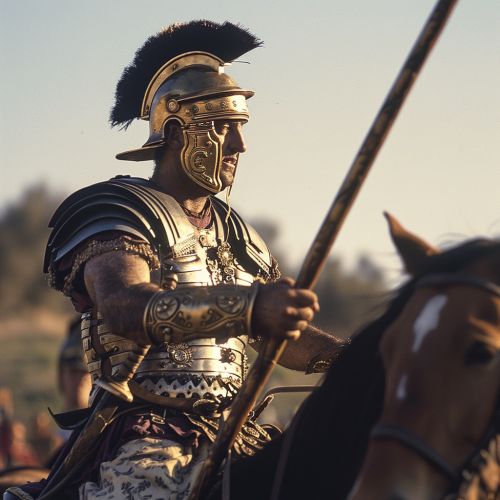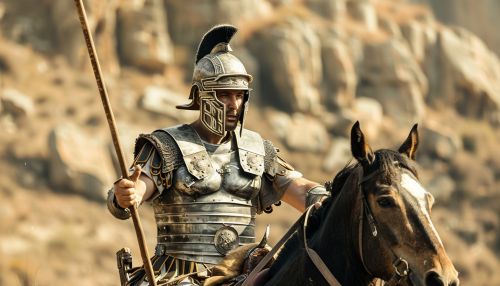Pliny the Elder
Early Life
Gaius Plinius Secundus, better known as Pliny the Elder, was born in AD 23 in the town of Como, in what is now Italy. His family was of the equestrian class, a social rank just below the senatorial class in the Roman Empire.
Education and Military Career
Pliny was educated in Rome, where he studied rhetoric, a form of public speaking that was highly valued in Roman society. He then embarked on a military career, serving in Germany under the command of Lucius Pomponius Secundus. It was during this time that he began his writing career, penning a work on the use of throwing spears from horseback.


Public Service and Writings
After his military service, Pliny held a number of public offices, including procurator in Spain, a position similar to a modern-day governor. Despite his busy public life, he continued to write extensively. His works covered a wide range of topics, including history, biography, and natural science. His most famous work, "Naturalis Historia" (Natural History), is an encyclopedic work covering a wide range of topics, including astronomy, geography, zoology, botany, and mineralogy. It remains one of the most important sources of information about the ancient world.
Death
Pliny died in AD 79 during the eruption of Mount Vesuvius. He had been at Misenum, across the Bay of Naples from Vesuvius, and set sail to rescue friends trapped by the eruption. He died from inhaling the volcanic fumes.
Legacy
Pliny's "Naturalis Historia" was widely read and influential throughout the Middle Ages and the Renaissance. It was one of the earliest works to be printed following the invention of the printing press. His work continues to be studied today for its insights into ancient knowledge and beliefs.
